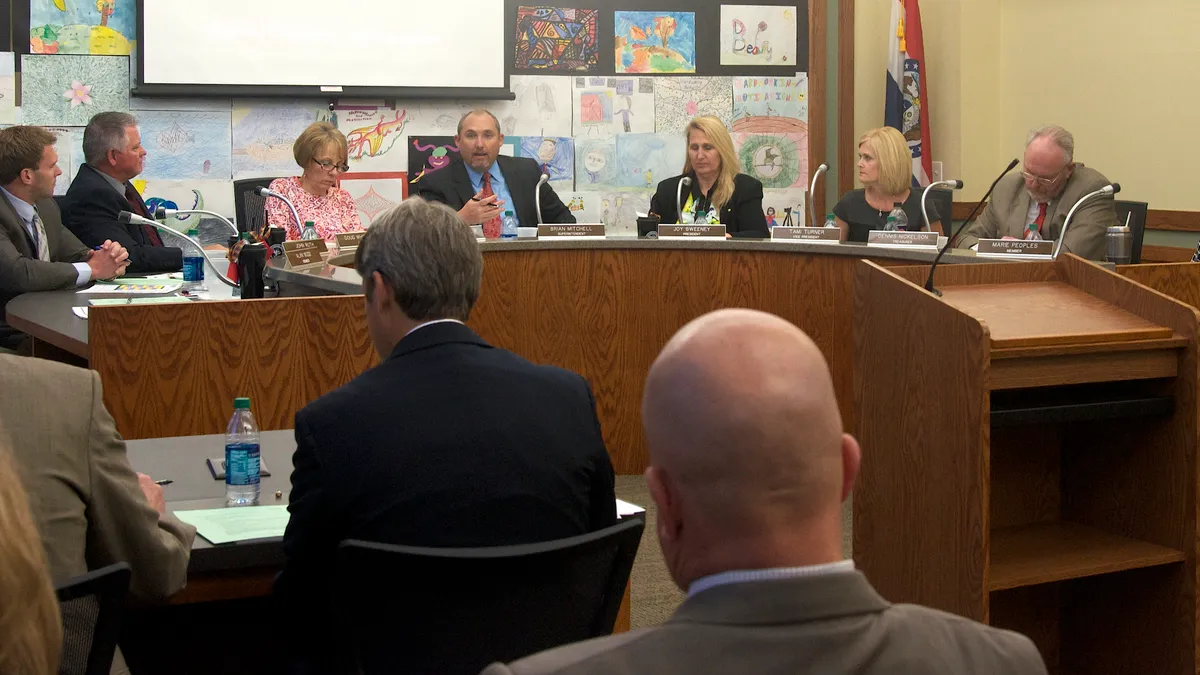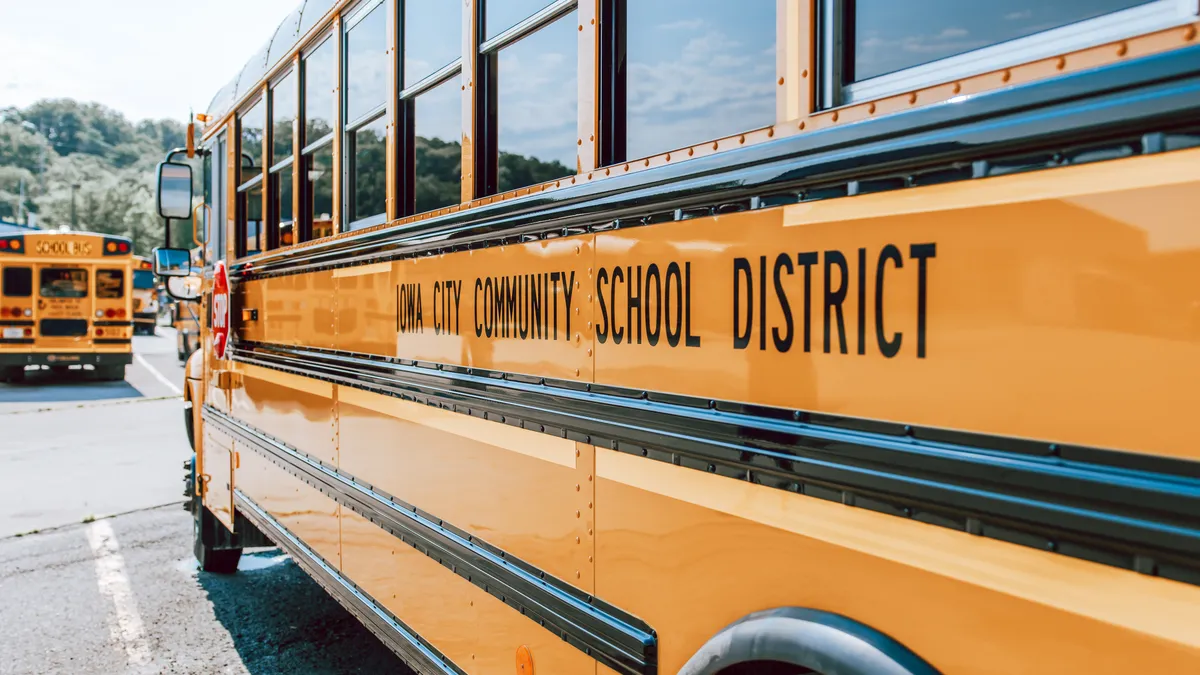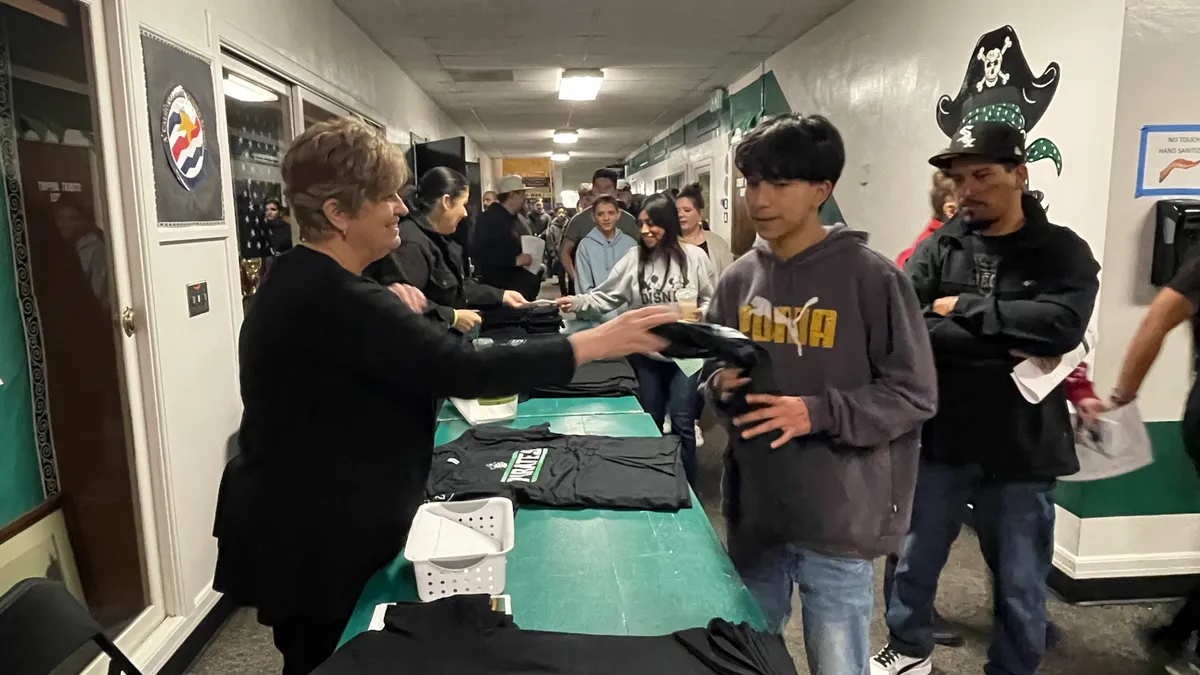In the past few years, school districts have navigated extraordinary challenges, from COVID-19 shutdowns and students' academic lags to politically charged parental involvement and a constantly shifting policy landscape.
Inevitably, some of these issues that start at the schoolhouse make their way to the courthouse.
"As states pass legislation providing more defined rights for parents, and parents approach school officials with requests or legal complaints regarding curriculum, teacher speech in the classroom, and school-wide programs, schools face increased likelihood of receiving complaints," said Andrew Manna, a partner at law firm Church Church Hittle and Antrim and chair-elect of the National School Attorneys Association, in an email.
Manna said lawsuits in those and other education areas have increased over the past two decades — and continue to climb. Amid it all, districts continue to field lawsuits on common yet hot-button issues like special education and Title IX.
"So you have those sort of garden variety things that school districts tend to face," said Verjeana McCotter-Jacobs, executive director and CEO of the National School Boards Association. "And a lot of it is driven by climate," specifically by "what's happening in the political world or just education in general."
As districts nationwide gear up for another school year, here are the top legal liabilities they may face in 2024-25.
First Amendment
Issues regarding freedom of religion and speech of students, staff and even school board members will likely remain front and center.
Anti-LGBTQ+ curriculum and policies in conservative states have already led to a number of high-profile First Amendment lawsuits. LGBTQ+ supporters are alleging violations of freedom of speech, while opponents of students and employees using preferred pronouns, or allowing bathroom access based on gender alignment, claim violations of religious belief accommodations.
"I think we can anticipate that those things will continue," said Dennis Parker, adjunct professor at Columbia University's Teachers College and an expert in education policy and social analysis.
Activism in response to the Israel-Hamas war has also split students and staff, with district leaders including the superintendent of New York City Public Schools stepping in to discipline students and staff after politically charged encounters.
In some places, school boards have sought to pass resolutions calling for a cease-fire in the war in hopes of making the school districts more welcoming for Palestinian, Israeli, Jewish and Muslim students. However, that's led to pushback from supporters of Israel and Jewish community members, who say resolutions made them feel targeted or isolated.
"And there were some that were like, "Why are we even in that discussion? Why are we even talking about that?" said McCotter-Jacobs of the board resolutions.
Changing school climates because of the war have already brought increased U.S. Education Department investigations of bullying and harassment based on shared ancestry and ethnicity — and may also lead to First Amendment disputes.
Title IX
In the past few presidential administrations, policies and practices related to anti-sex discrimination protections in schools have turned volalite.
The few months since the Biden administration released its final rule protecting LGBTQI+ students in April have been particularly charged. Legal challenges from conservative states have blocked implementation of the rule in at least 26 states and more than 400 specific schools. In those states and schools, the Education Department will be enforcing the 2020 rule instead, the agency said on the morning of the rule's Aug. 1 implementation date.
However, until that morning, schools had not heard from the agency as to which rule would be in effect, leaving educators in those areas confused and frustrated about how to proceed on training and other preparation for the new school year.
"As litigation continues and courts issue injunctions halting implementation of the Title IX Final Rule issued by the Department of Education on sex-based discrimination, many school districts are in the position of not knowing which set of regulations, and which parts of those regulations, will be in force in the new school year," said Manna prior to the Aug. 1 final rule implementation date. "This situation sets up schools for complaints by individuals who believe the school is following the wrong rules."
Privacy
Schools also risk liability with technology constantly evolving, social media at the tips of students' fingers, and the introduction of artificial intelligence into the classroom.
Pornographic deepfakes spreading on social media, for example, became an issue in one district in New Jersey earlier this year. In other places, lawsuits alleging school district negligence have cropped up over bullying — including cyberbullying — after tragic student suicides.
"What does it mean if a student threatens harm in a social media post, but they were only joking?" McCotter-Jacobs asked.
How to handle such bullying can be written into student codes of conduct, McCotter-Jacobs said. "So policies will be put in place to avoid lawsuits that may come out of not providing a safe and respectful school environment."
Privacy issues might also arise with vendors who can access sensitive student and staff information, or from unsafe district practices leading to data leaks.
"How many school districts have we heard that have been hacked into, and the information has been made public or things like that?" asked McCotter-Jacobs. "So cybersecurity has become a really big issue for school districts."
DEI
Diversity, equity and inclusion issues are another area where districts walk a fine line. In recent years, "divisive concept" laws, U.S. Supreme Court decisions on race-conscious college admissions practices, and increased activism for and against diversity efforts have complicated district approaches to creating inclusive environments.
Since 2023, over 150 bills regulating DEI in education have been introduced across 34 states, according to a Movement Advancement Project report released in July. At least 15 states have enacted such bans or restrictions.
As a result of heightened awareness and activism on DEI, districts could face liability around efforts to diversify the teacher pipeline, for instance. Hiring programs meant to increase the number of minority teachers could become subject to greater scrutiny, said Parker.
"That's not to say that there aren't practices you can do that would be effective, but that they will have to be really carefully considered when you're putting them in place," he added.
Curriculum, textbook and course decisions should also be made carefully with DEI restrictions and benefits both in mind, said Parker.
Special education
In line with trends in previous years and especially after the pandemic, special education lawsuits continue to roll in. With districts regularly understaffed in special education, it is especially difficult to provide adequate services not only in compliance with the law but also that satisfy parents.
"Special education is an area that every district across the country can, in some form or fashion, find themselves looking at legal compliance," said McCotter-Jacobs.
During COVID school building shutdowns, the Education Department required school districts to continue providing students a "free appropriate public education" as promised under IDEA, but many were concerned that districts lacked the ability to provide adequate services. Lawyers also gave districts varying advice on the issue, McCotter-Jacobs said.
As a result, districts will likely grapple with COVID special education-related lawsuits for another few years, she said.
While there is a federal two-year statute of limitations on when parents can use a more formal dispute resolution option by requesting a due process hearing, states can extend that time frame. And while it's already been a few years since COVID shutdowns, students' pandemic recovery challenges could still keep school attorney's hands full.






 Dive Awards
Dive Awards








